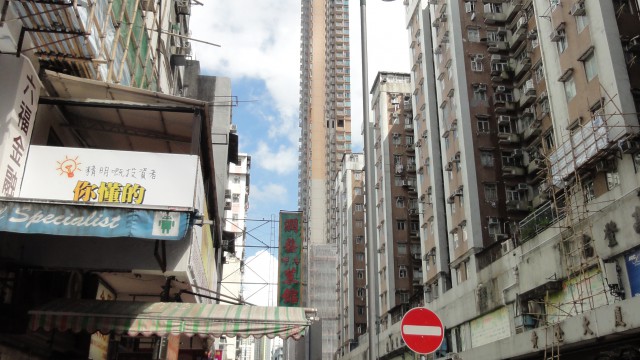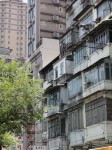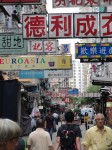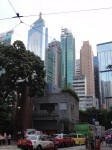
Hong Kong: All or Nothing
Down: Streams of people with their eyes on the ground looking out for tripping hazards and wet spots from the last rain.
Up: Beanpole-thin houeses litterally scraping the low sky.
In between: Rumbling traffic noises, voices, dripping air conditioning and the lumping, smothering heat.
More than half of the 35 participants come from outside Hong Kong to take part in this year’s ‘Common Stage’ project. To some of them the density of inhabitants is not a big change since they live in Singapore, Hangzhou, Shanhai or Peking. But the whole residentship of Zurich would fit into the metropolis 14 times.
Liveliness wherever you look in Hong Kong: 3 local languages are spoken at the same time with English as official language as well as Cantonese and Mandarin for daily communication. The combination of little space but many people jammed together on the artificially reclaimed land made the skyscrapers climb higher and higher. With the stunning skyline or the Tsing Ma bridge which resembles the famous Golden Gate bridge in San Francisco, Hong Kong competes with the global cities all over the world. “Hong Kong has everything”, concludes professor Roy Szeto from the Hong Kong Academy of Performing Arts during his introduction of the city.
In an advertising way of a city guide he names more highlights until Hong Kong seems like an exotic Asian version of New York City. But not for long until he destroys the image with quite the contrast programme: “Hong Kong has nothing, because everything is copied and recycled from other cities.”, says Roy Szeto. “We have a lack of identity and it’s not surprising that we landed on the 64th place of the world happines report, way behind other Asian big cities. People are unhappy with the social environment and also with the political situation.”
However, the most important engine of the city is its business capability and money. Consuming as well as the struggle for everday’s monetarian survival determine the life’s of the Hong Kongers. The stress starts early whereas school children undergo the “duck stuffing teaching method” as Roy Szeto calls it. No wonder that the grade of happiness dropped half between 2012 and 2013.
Especially in the Chinese and Hong Kong culture happiness is extemely important for welfare, both personally and businesswise. Apparently a perfect environment to start the quest for “living a happy life”.




